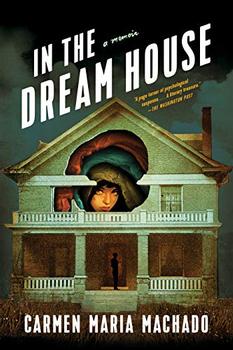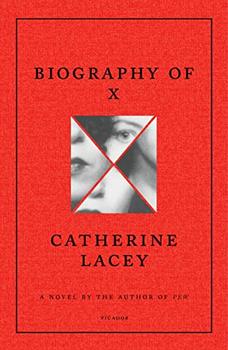Summary | Excerpt | Reviews | Beyond the book | Read-Alikes | Genres & Themes | Author Bio

A revolutionary memoir about domestic abuse by the award-winning author of Her Body and Other Parties.
In the Dream House is Carmen Maria Machado's engrossing and wildly innovative account of a relationship gone bad, and a bold dissection of the mechanisms and cultural representations of psychological abuse. Tracing the full arc of a harrowing relationship with a charismatic but volatile woman, Machado struggles to make sense of how what happened to her shaped the person she was becoming.
And it's that struggle that gives the book its original structure: each chapter is driven by its own narrative trope―the haunted house, erotica, the bildungsroman―through which Machado holds the events up to the light and examines them from different angles. She looks back at her religious adolescence, unpacks the stereotype of lesbian relationships as safe and utopian, and widens the view with essayistic explorations of the history and reality of abuse in queer relationships.
Machado's dire narrative is leavened with her characteristic wit, playfulness, and openness to inquiry. She casts a critical eye over legal proceedings, fairy tales, Star Trek, and Disney villains, as well as iconic works of film and fiction. The result is a wrenching, riveting book that explodes our ideas about what a memoir can do and be.
The author is recounting her own narrative, but also building on a foundation of storytelling that is timeless. There's a villain, but the hero doesn't know she is in danger. There's a haunted house, and we want to tell the hero to get out of there. There's ominous foreshadowing around every corner, and we want to grab her by the lapels and shake her, tell her, "This is not right!" Which is to say, Machado is a master of dramatic tension, and brilliantly illustrates the constant, low-level dread and psychological stress one feels in a relationship with an abusive person...continued
Full Review
(696 words)
This review is available to non-members for a limited time. For full access,
become a member today.
(Reviewed by Lisa Butts).
 In Carmen Maria Machado's memoir In the Dream House, she writes of her abusive relationship with another woman and the lack of scholarship and cultural representations available on the subject of abuse in queer relationships in general. Having researched the subject exhaustively, she provides snapshots of examples throughout the book, including the 1892 murder of 17-year-old Freda Ward by 19-year-old Alice Mitchell, with whom Freda was romantically involved.
In Carmen Maria Machado's memoir In the Dream House, she writes of her abusive relationship with another woman and the lack of scholarship and cultural representations available on the subject of abuse in queer relationships in general. Having researched the subject exhaustively, she provides snapshots of examples throughout the book, including the 1892 murder of 17-year-old Freda Ward by 19-year-old Alice Mitchell, with whom Freda was romantically involved.
Freda and Alice met at the Higbee School for Girls in Memphis, Tennessee. They grew close, and it was not unusual at the time for girls to hold hands, kiss and otherwise express affection, so their attachment was not regarded with any special notice by most. The Wards moved to ...
This "beyond the book" feature is available to non-members for a limited time. Join today for full access.

If you liked In the Dream House, try these:

by Tia Levings
Published 2024
"Today it hit me when he hit me, blood shaking in my brain. Maybe there wasn't a savior coming. Maybe it was up to me to save me."

by Catherine Lacey
Published 2024
From one of our fiercest stylists, a roaring epic chronicling the life, times, and secrets of a notorious artist.
We've heard that a million monkeys at a million keyboards could produce the complete works of Shakespeare...
Click Here to find out who said this, as well as discovering other famous literary quotes!